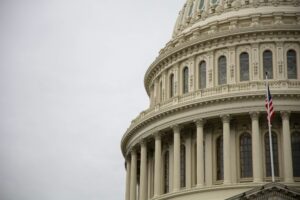Companies are now challenged to give greater consideration to the complications that class action waivers may cause when taken to the extreme.
The Supreme Court has allowed companies to side step class actions by inserting “class action waivers” in their arbitration agreements. The terms and conditions which comprise an arbitration agreement must be carefully crafted to clearly define the intentions of the parties. In order to avoid claims of class actions which can be extremely litigious and costly, companies have included a provision stating that…
Any dispute arising under this agreement shall be finally settled on an individual basis in accordance with the Rule of the (American Arbitration Association /JAMS/Transportation ADR Council) …
Recently, some employees are taking the class action clauses to the extreme by initiating arbitration proceedings by the thousands. The resulting potential cost for employer could be tens of millions of dollars. Mass arbitration campaigns are being waged with at least four companies. Chipotle, Uber, Lyft and Buffalo Wild Wings were hit with hundreds or thousands of arbitration claims.
The reported number of claims filed against the above companies recently appeared in the Daily Labor Report on February 11, 2019 as follows:
- Buffalo Wild Wings: 391 Arbitration Claims
- Chipotle: 2,814 Arbitration Claims
- Lyft: 3,420 Arbitration Claims
- Uber: 12,501 Arbitration Claims
Buffalo Wild Wings has settled with their individual claimants to avoid arbitration, but the other three companies continue to fight the arbitration claims in court.
The question has been raised as to whether the attorneys behind the mass arbitration proceedings intend to arbitrate every arbitration or if their intent is to gain leverage so they can negotiate a settlement. The tactics that are being implemented with mass arbitration campaigns are not doing justice to the arbitration process and are, to some degree, corrupting the system.
Information provided by arbitration providers such as the American Arbitration Association and JAMS reflect that nearly 75% of all employment arbitration claims result in a settlement, with only 10% of employment arbitration claims ending in an award by an arbitrator.
Since the Supreme Court 2011 decision in AT&T Mobility LLC v Concepcion, employment arbitration claims peaked in 2015. Very few people have the expertise, capital and ability to coordinate dozens, hundreds or thousands of arbitrations. Companies are now challenged to give greater consideration to the complications that class action waivers may cause when taken to the extreme.
Pittsburgh Labor and Employment Attorneys
Please contact Frank Botta at (724) 776-8000 or fbotta@lynchlaw-group.com for more information on arbitration and class action waivers or for assistance in understanding the current state of employment laws, rules and regulations.




